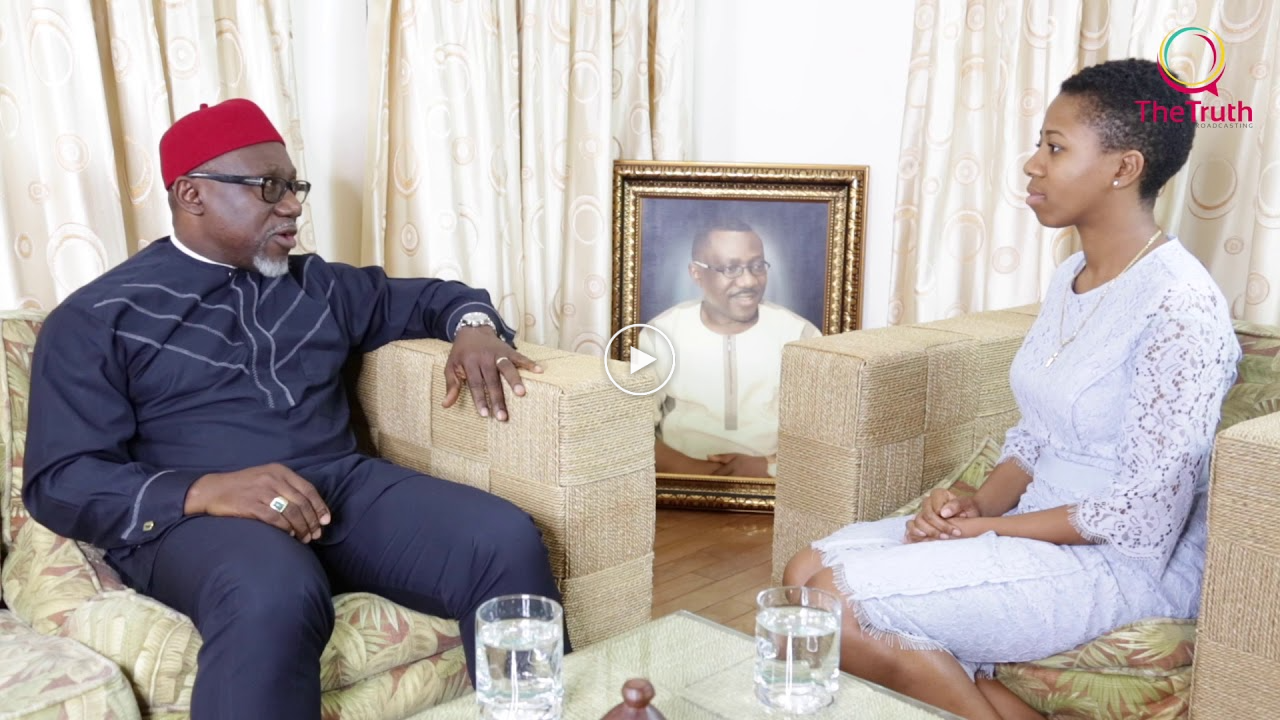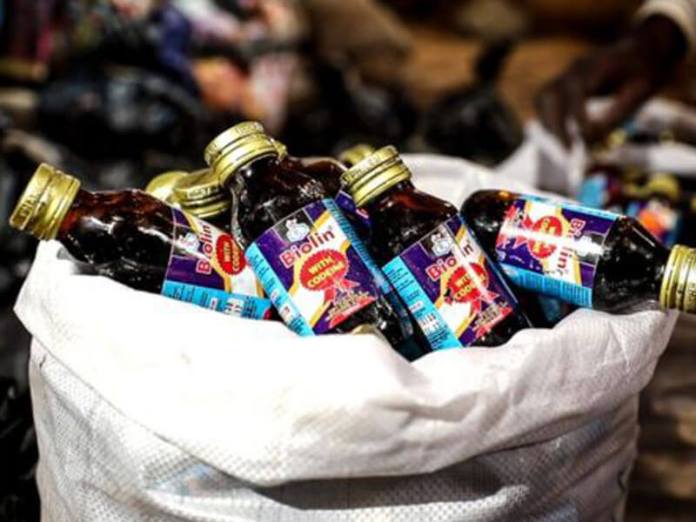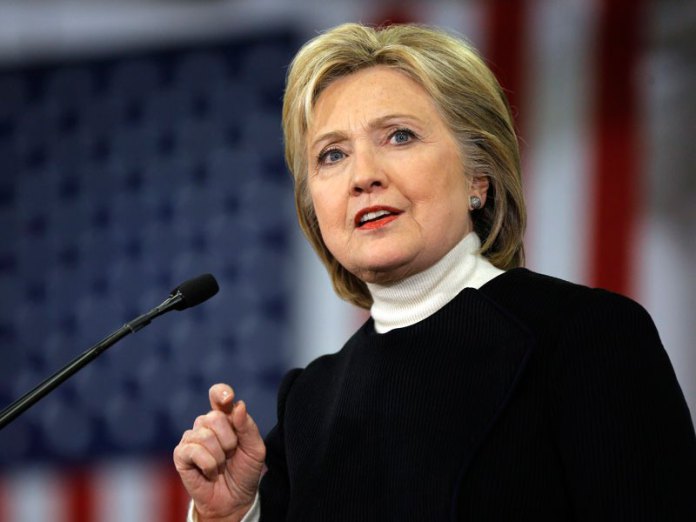‘A dead team’: Girona staring into the abyss after crushing loss to Levante | Sid Lowe
They were the football team so good, so much fun, that Luis Enrique declared himself a fan, tuning in to watch them every week. But that was then and this is now, and now even their actual fans aren’t sure they want to watch any more. There were 11,048 people at Montilivi this Saturday, out of the city centre and to the south beyond the Free City of Braavos and Kings Landing. There were at the start anyway; by the time Girona FC, the last and briefest of the great disruptors, conceded the fourth goal of another miserable afternoon most of them had already gone. The few who stayed chanted for the board to resign, just about audible over the catchiest club anthem in La Liga being belted out of huge speakers hung from scaffolding stands.
It was the fifth time in a row Girona’s supporters had seen their team lose here going back to May, a summer break, a new start, offering no break at all; instead, they were bottom of the table and had been battered again. Sevilla had come and scored two, Rayo Vallecano three, now Levante had four. They had gone to Villarreal and let in five. Girona, owned by Manchester City, the best of Spain’s other teams a year ago, Champions League anthem blaring out just a few months back, have a single point from when they drew 1-1 with Celta de Vigo, and that’s nothing special: Celta draw 1-1 with everyone, their last five games all finishing with same scoreline.
This isn’t the way it’s supposed to be. Or maybe it is; maybe it’s the good times that weren’t normal, slipping away again as fast as they came, Girona victims of their success. In a city of 98,255 that provides the setting for Game of Thrones and sometimes seems to have better things to do than football, where those who were into the game traditionally tended to be Barcelona fans, Girona had made history. Living up to it is proving hard.
A club that had not been in the first division until 2017, that briefly looked like they belonged and came down again two years later, one that hadn’t even been in the second division for half a century, Girona made it back to primera again in 2022, getting through the playoff after three years trying, a curse finally laid to rest. Twelve months on, they went top of it for the first time. For a lot of the year, it looked like they might actually stay there. People dared use the magic word: Leicester.
They didn’t. There was almost a kind of relief when they were defeated by Real Madrid that February, as if they had been released, real life intervening so they no longer had to cling to an illusion, expectations weighing on them. “This,” the coach Míchel Sanchez said that night at the Bernabéu, “is not our league” but the Champions League would be, an extraordinary, historic third place taking them into Europe, starting at the Parc des Princes.
Which was where, a year ago almost to the day, the Paris Saint-Germain coach said they were the “most enjoyable” team to watch La Liga playing “wonderful football”, with a “great manager”. He wasn’t wrong either: it was not just what Girona did, it was how they did it. “Playing well needn’t be unusual,” Míchel said. Champions League football was the reward. There was a promise too: Cristhian Stuani, the club’s greatest ever player but 37 and not expected to appear much, would start with the captain’s armband. “Coming here reminded me of [promotion against] Tenerife and the second division years,” Michel said. “We’ve done this with wonderful days. I’ve told the players they deserve to be here, and to enjoy it. We come to a place that was a dream.”
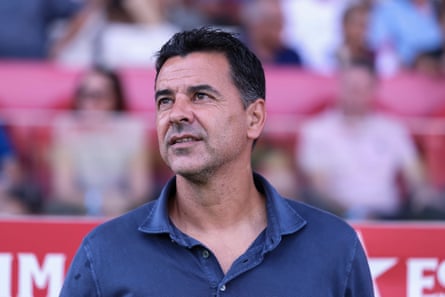
The problem with dreams is that sometimes they come true. A last-minute own-goal from Paulo Gazzaniga saw them lose 1-0 in Paris, the first in a catalogue of moments when they didn’t so much shoot themselves in the foot as point a bazooka at it and blow the thing to bits. They scored two own goals, missed a penalty and had a goal disallowed in a 3-2 loss against a Feyenoord side who had only taken two shots on target. There was another own-goal against PSV and two more penalties conceded, against Liverpool and Arsenal. They had been unlucky, opposition coaches kept insisting – Arne Slot came and said so, Mikel Arteta did too – but they finished 33rd in the table. Only Young Boys and Slovan Bratislava won fewer games.
That wasn’t the worst of it either: back in Spain, Girona were knocked out of the Copa del Rey by fourth-tier UD Logroñés. In La Liga, they found themselves slipping towards trouble, the unexpectedness part of the problem, eventually avoiding relegation by one point. Now, the fear is that they do it over again, a dreadful start not simply a fluke. It is not just that they have not won in five games this season; it is that they have only won two of their last 21.
On one level, this is the classic overachiever’s story, the team that took them into the Champions League taken apart apart with a crushing inevitability, soon slipping back to where they belong. At the end of the season in which they finished third, Artem Dovbyk, Aleix García, Eric García, and Savinho were among the players to leave, their top scorer, top assister, top passer, top dribbler and top tackler all gone. Five of the seven outfield players with the most minutes had left, leaving a huge hole, and it is hard to identify an unqualified success amongst the replacements. Six of this summer’s departures only came twelve months earlier, ditched already. Miguel Gutiérrez and Yangel Herrera left too, and they would be missed. Nor was the business sorted in good time, Míchel complaining that the uncertainty affected everything, minds elsewhere as they team was left behind. “For someone, this year’s project hasn’t started; I don’t know if the club thinks the first nine points aren’t important, but they are to me,” he said.
And yet there is something else, something deeper, a little less tangible – and it ate at him. On the eve of that PSG game, he had insisted the Champions League was there to be enjoyed, that they would always have Paris – yes, he really said that – but it was La Liga that would define them. The Champions League could only be positive; it would not be a distraction nor alter their focus. But that was precisely what happened, Girona blinded by the lights, dizzy new heights. It was, Míchel became increasingly aware, as if the Champions League was all that mattered, the league abandoned until suddenly, with Europe gone, it began to look dangerously like that would slip from them too. That he was increasingly prepared to say so spoke of his desperation, a coach losing control.
After defeat against Betis, he declared they had “rock-bottom”, but there was further to fall. “I don’t feel represented by these players; that’s hard to take, very painful,” he said. He had seen “a dead team on the pitch and I need a team with passion,” he said. As he left the press conference room after a 1-1 draw with Leganés in week 33, he said something even more striking: turning towards the press officer, he muttered, “I want to die, mate”. The coach committed to a style, to playing, to enjoyment, insisted that competing came first. “We lack soul; this isn’t a football question, it’s an emotional one, a mental one,” he said; it was about pressure or a lack of it, about application and ego. A failure to see where they really were, who they really were.
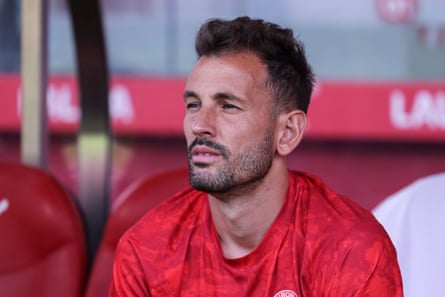
More eloquent than anything he said was what he did; in those final weeks, he turned to the old guard, to Stuani and Portu, to those he could trust, those who cared, to rescue them. Stuani scored the only goal in wins against Mallorca in week 34 and Valladolid which saw them safe, just. Stuani, at 38, scored four of Girona’s last five goals of the season (seven of the last nine), Portu got the other. Stuani finished as top scorer, with less than a third of the minutes.
Something was broken, the most fundamental thing of all. Every thing they had done had disintegrated, the dream damaging them. This was not so easily fixed, and the fault lines were ever more public. Fans couldn’t be expected to back them if they didn’t leave their skin out there, Michel said. When they conceded five to Villarreal he insisted: “we’re playing with people’s pride. Today I felt we weren’t a team.” Then this Saturday, it happened again: two red cards didn’t help, and in truth they have had worse performances, but by the end, it was another bad day, another four goals conceded. The team that was so much fun not worth watching any more, not really a team at all. Bottom of the table, without a win, goal difference -13.
“I’m the most fearful person, but I fight fear with work,” Míchel said, the place empty now. “Everything is dramatic, lamentable, terrible, but I see green shoots. We need a reset. I see a lack of humility. They’re not playing in the Champions League Girona side now. If anyone thinks they are, they’re wrong. Fight for your team, that’s what we’re asking for. We have to leave our egos behind. There are players who at two down thought, ‘bah, this is shit, I’ve played in the Champions League, I’ve won at Barcelona … ’ No. You’re doing as badly as I am. Get rid of your ego now, mate. I have. I’m the worst coach in La Liga.”
| Pos | Team | P | GD | Pts |
|---|---|---|---|---|
| 1 | Real Madrid | 5 | 8 | 15 |
| 2 | Barcelona | 5 | 13 | 13 |
| 3 | Villarreal | 5 | 6 | 10 |
| 4 | Espanyol | 5 | 1 | 10 |
| 5 | Elche | 5 | 3 | 9 |
| 6 | Real Betis | 6 | 2 | 9 |
| 7 | Athletic Bilbao | 5 | 0 | 9 |
| 8 | Getafe | 5 | -1 | 9 |
| 9 | Sevilla | 5 | 1 | 7 |
| 10 | Alaves | 5 | 0 | 7 |
| 11 | Valencia | 5 | -2 | 7 |
| 12 | Atletico Madrid | 5 | 1 | 6 |
| 13 | Osasuna | 5 | 0 | 6 |
| 14 | Rayo Vallecano | 5 | -1 | 5 |
| 15 | Celta Vigo | 6 | -2 | 5 |
| 16 | Levante | 5 | 0 | 4 |
| 17 | Oviedo | 5 | -7 | 3 |
| 18 | Real Sociedad | 5 | -4 | 2 |
| 19 | Mallorca | 5 | -5 | 2 |
| 20 | Girona | 5 | -13 | 1 |


